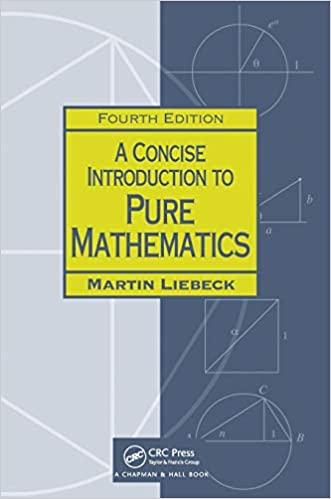When we want to add three numbers, say (a+b+c), we don't bother inserting parentheses because ((a+b)+c=a+(b+c)). But
Question:
When we want to add three numbers, say \(a+b+c\), we don't bother inserting parentheses because \((a+b)+c=a+(b+c)\). But with powers, this is not true \(-\left(a^{b}\right)^{c}\) need not be equal to \(a^{\left(b^{c}\right)}\) - so we must be careful. Show that this really is a problem, by finding positive integers \(a, b, c\) such that \(\left(a^{b}\right)^{c}
Fantastic news! We've Found the answer you've been seeking!
Step by Step Answer:
Related Book For 

Question Posted:





